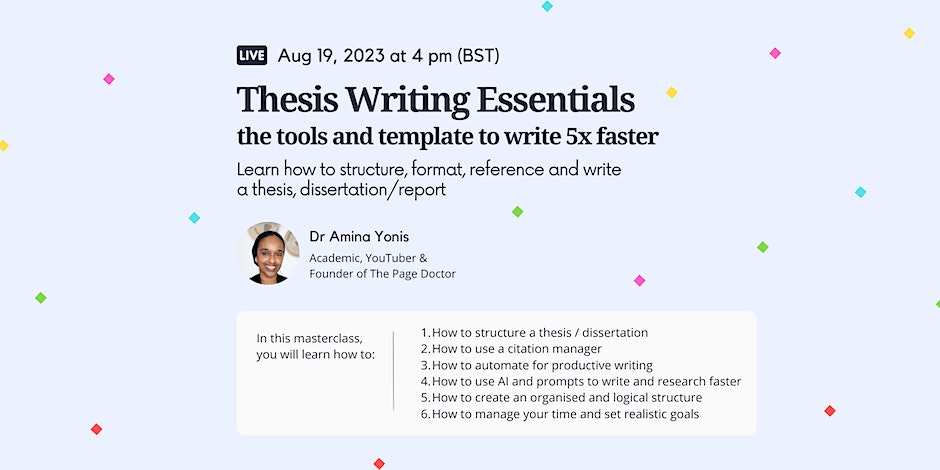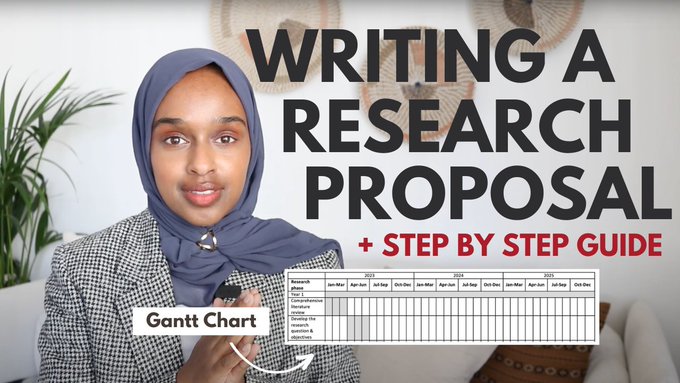Amina Yonis博士一位效率专家。
她以伦敦为基地,借助网络,分享她的思想和智慧。
不久前,在社交媒体上看到她分享的一个帖子,题目叫:20 个有效的 ChatGPT 提示语,可以在几秒钟内改善您的学术写作。
她分享的这20个用于改善学术写作的 ChatGPT 提示语:
- Please revise the text to incorporate more formal vocabulary and precise terminology appropriate for an academic audience.
- Transform the sentences to eliminate colloquial language and enhance the overall scholarly tone of the document.
- Enhance the clarity and coherence of the text by implementing sophisticated sentence structures and advanced language usage.
- Rework the text to ensure a consistent application of academic conventions, such as proper citation and adherence to a specific referencing style.
- Refine the text by integrating relevant scholarly sources to support and bolster the presented arguments.
- Rework the text to adhere to the conventions of scholarly objectivity, refraining from personal anecdotes or emotional language.
- Elevate the language in the text by utilising appropriate synonyms and eliminating redundant or informal phrases.
- Revise the text to exhibit a more detached and objective voice, characteristic of academic discourse.
- Adjust the tone of the text to be more analytical and less opinion-based, maintaining a focus on evidence and logical reasoning.
- Rephrase the text to maintain an appropriate level of formality while conveying complex ideas with precision.
- Transform the text to ensure a seamless flow between paragraphs and sections, allowing the reader to follow the logical progression of ideas.
- Enhance the text’s cohesion by implementing transitional phrases and appropriate signposts that guide the reader through the content.
- Review the text for any instances of jargon or overly technical language, replacing them with explanations that aid comprehension.
- Revise the text to reflect a nuanced and balanced perspective, taking into account various scholarly interpretations and viewpoints.
- Adjust the text to include more extensive critical analysis and engage with relevant counterarguments or alternative theories.
- Rework the text to adhere to the conventions of formal academic writing, including proper organisation, headings, and subheadings.
- Transform the language in the text to convey a sense of authority and expertise, showcasing a mastery of the subject matter.
- Enhance the text’s academic rigour by incorporating empirical evidence, data, or case studies to support theoretical claims.
- Revise the text to ensure that concepts are defined clearly and concisely, catering to readers who may be less familiar with the subject.
- Adjust the text to include citations not only for direct quotations but also for paraphrased ideas and borrowed concepts.

把这20个提示语翻译成中文,我们就可以在国内的一些大语言模型中加以使用了!
1. 请修改文本,以纳入适合学术受众的更正式的词汇和精确的术语。
2. 转换句子,消除口语,增强文档的整体学术基调。
3. 通过实施复杂的句子结构和高级语言使用,增强文本的清晰度和连贯性。
4. 修改文本以确保学术惯例的一致应用,例如正确的引用和遵守特定的参考风格。
5. 通过整合相关学术来源来完善文本,以支持和支持所提出的论点。
6. 修改文本以遵守学术客观的惯例,避免使用个人轶事或情感语言。
7. 通过使用适当的同义词和消除冗余或非正式的短语来提升文本中的语言。
8. 修改文本,以表现出更超然和客观的声音,这是学术话语的特征。
9.调整文本的语气,使其更具分析性,减少基于意见,保持对证据和逻辑推理的关注。
10. 改写文本以保持适当的正式程度,同时精确地传达复杂的想法。
11. 转换文本以确保段落和部分之间的无缝流动,使读者能够遵循思想的逻辑进展。
12. 通过实施引导读者阅读内容的过渡短语和适当的路标来增强文本的凝聚力。
13. 检查文本中是否有任何行话或过于技术性的语言,用有助于理解的解释代替它们。
14. 修订文本,以反映细致入微和平衡的观点,同时考虑到各种学术解释和观点。
15. 调整文本以包括更广泛的批判性分析,并参与相关的反驳或替代理论。
16. 修改文本以符合正式学术写作的惯例,包括适当的组织、标题和副标题。
17. 改变文本中的语言,以传达权威感和专业知识,展示对主题的掌握。
18. 通过结合经验证据、数据或案例研究来支持理论主张,增强文本的学术严谨性。
19. 修订文本,确保概念定义清晰简洁,迎合可能不太熟悉该主题的读者。
20. 调整案文,不仅包括直接引用的引用,还包括转述思想和借用概念的引用。
在Eventbrite上看到,8月19日23:00-02:00 CST,Amina Yonis 有一个在线大师班,主题是《学位论文写作基础:让你写快5倍的工具与模版》(Thesis Writing Essentials: the tools and template to write 5x faster)

《学位论文写作基础:让你写快5倍的工具与模版》
这个时间应该是北京时间,8月20日中午12点到下午3点,
这个在线大师班是收费的,费用是 £54.86,合500多元人民币。
链接在这里:https://www.eventbrite.com/e/thesis-writing-essentials-everything-you-need-to-write-5x-quicker-registration-685502154397?aff=oddtdtcreator

In this masterclass, you will learn:
- To understanding the purpose and components of a thesis – such as the abstract, introduction, literature review, methodology, results, discussion, and conclusion
- How to improve academic writing and style – including clarity, coherence, proper citation and referencing, and adherence to the designated writing style (e.g., APA, MLA)
- How to create organised and logical structure, ensuring a smooth flow of ideas and logical progression from one section to another
- How to use a citation manager (Mendeley) to cite sources correctly and adhering to ethical standards in research and writing
- How to manage your time and set realistic goals to avoid procrastination and achieve milestones throughout the thesis writing process
- How to overcome writer’s block and challenges – how to maintain motivation during the lengthy writing process
- Top strategy for editing – how to review and polish your work and ensure a professional final product
- How to use AI and prompts to write and research faster – Elicit, ChatGPT, R Discovery, Scholarcy, PaperPal & Bing/Bard
- How to structure a thesis using The Page Doctor thesis template
This masterclass is suitable for all disciplines and research backgrounds.

贺兰山晚霞(行进中的车子里手机拍摄)
Photo by Johnnie Walker